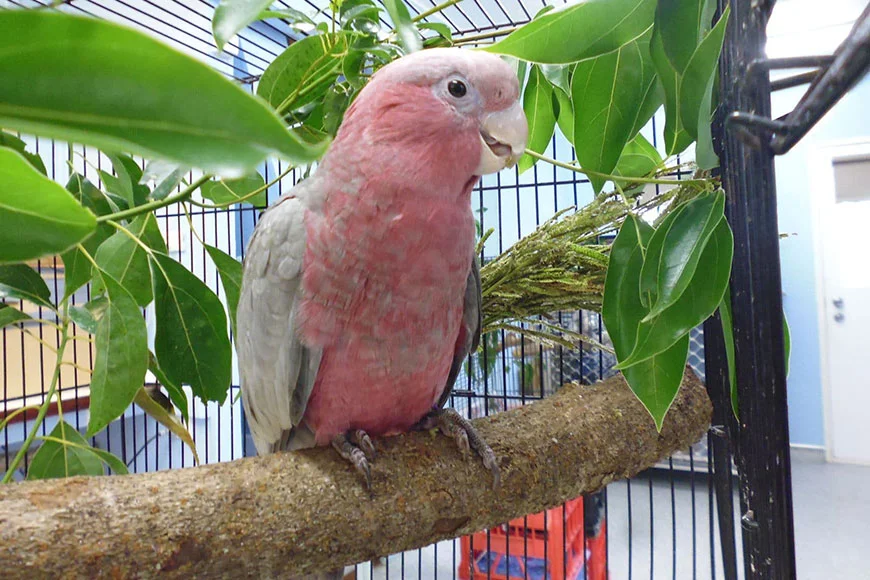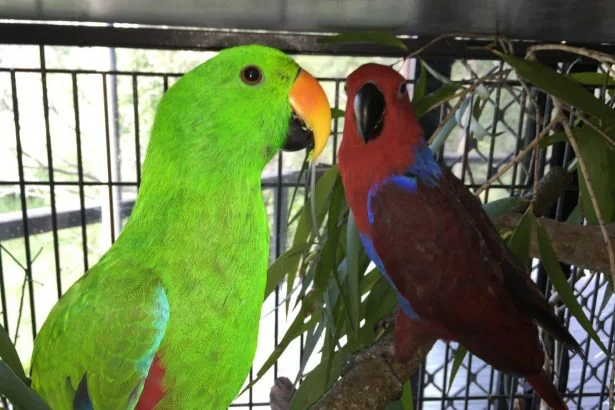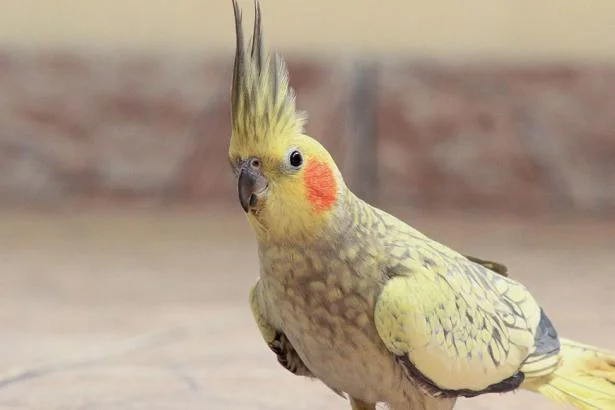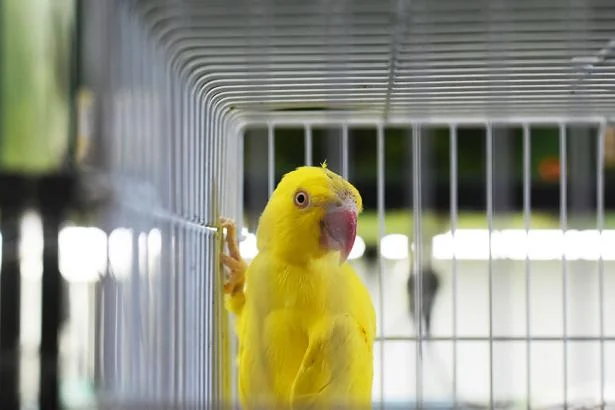When purchasing a cage for a pet bird, many people don’t give much consideration to the perches. All too often people stick with the rounded dowel perches that commonly come with the cage they purchased. This is a problem for the bird. Why is it a problem? The uniform size of store bought bird perches aren’t ideal – the bird is forced to grip in the same position for every minute of its life. The smoothness of the dowel also means that the feet are always slipping, causing unnecessary strain on their feet and joints.
To have a bird, or any animal for that matter, you have to think about their needs – to think like them. What would you like in your personal enclosure? As a human you probably wouldn’t enjoy a bed made of concrete – just like they wouldn’t enjoy a dowel perch, they need natural bird perches. Australia has many homemade bird perches from tree branches available to you and your parrot – you can even buy them online.
Something to keep in mind is that dowel perches are often the wrong size for the bird – if they are too narrow the bird has to grip tightly, causing their claws to wrap underneath and making it very uncomfortable as pressure is focused on the same area of their feet. A dowel bird perch can even result in pressure sores – that certainly isn’t fun for the parrot.
A perch that is too narrow also doesn’t allow the nails to naturally wear down, resulting in long, overgrown claws. If the perch is too wide, however, and the bird cannot grasp the perch, it may cause tendon problems in their feet.
Having the wrong perches for birds can be likened to a person wearing an ill-fitting pair of shoes. Wild birds have the freedom to choose suitable perches themselves; in captivity it is the responsibility of the owner to select appropriate natural bird perches for the type of avian pet they have. For instance, cockatiel perches should be similar to the environment they would naturally live in, wood perches for parrots should follow the same guideline.
True animal husbandry means that you are in some ways their pet, you have to think of your avian friend and their needs the same way you would for your best friend. Are branches from native Australian trees safe for parrots? The answer in general is yes, many of them are, but you want to avoid anything exotic or ornamental. The best safe wood for bird perches would be bottle brush, paper bark, wattle, melaleuca, iron bark and ti-tree. You also want to make sure that the branches you choose as a bird perch are the right size for the bird to comfortably grip upon.
When choosing the branches, you also want to keep in mind their instinct to both chew and forage – they should have rough bark on their bird perches. Australia luckily has many native trees with the bark your bird will absolutely love, both with their feet and their beak. Having the right native plants and seed pods offered in their enclosure will also help keep the bird entertained. This is another reason why a rounded dowel bird perch doesn’t make sense for the animal. A bird in captivity will get bored if they have nothing to chew on, which will undoubtedly lead to problems with over consumption of feed and the health issues that come with it.
So if you want to make sure your avian family member is living its best life, it all starts with the perch. Making sure your bird’s enclosure has all the things it needs to both be comfortable and entertained is easy. Check back soon for further articles regarding your exotic pets!
FAQs
In general trees such as wattle, ironbark, melaleuca, bottle brush, paper bark and ti-tree are perfectly safe wood for bird perches. Birds love to rip and tear at the bark with their beak and these types are great for their claws and feet. Birds need uneven, knobby surfaces to perch upon in order for the best foot health.
If the perches are natural tree branches with plenty of bark then they are suitable for your bird. You definitely want to avoid the factory made and rounded bird perches that are sold in most pet stores. For the happiness and health of your avian companion you want to go with natural bird perches. Australia is full of trees that provide the perfect wood for bird perches.
Bird perches should be changed frequently if for no other reason than to keep your avian companion entertained. People often think that a single perch will suffice, but your bird needs several in their enclosure that are made of different types of wood. When bird perches no longer have any bark on them, it is a good idea to replace them with new ones.





